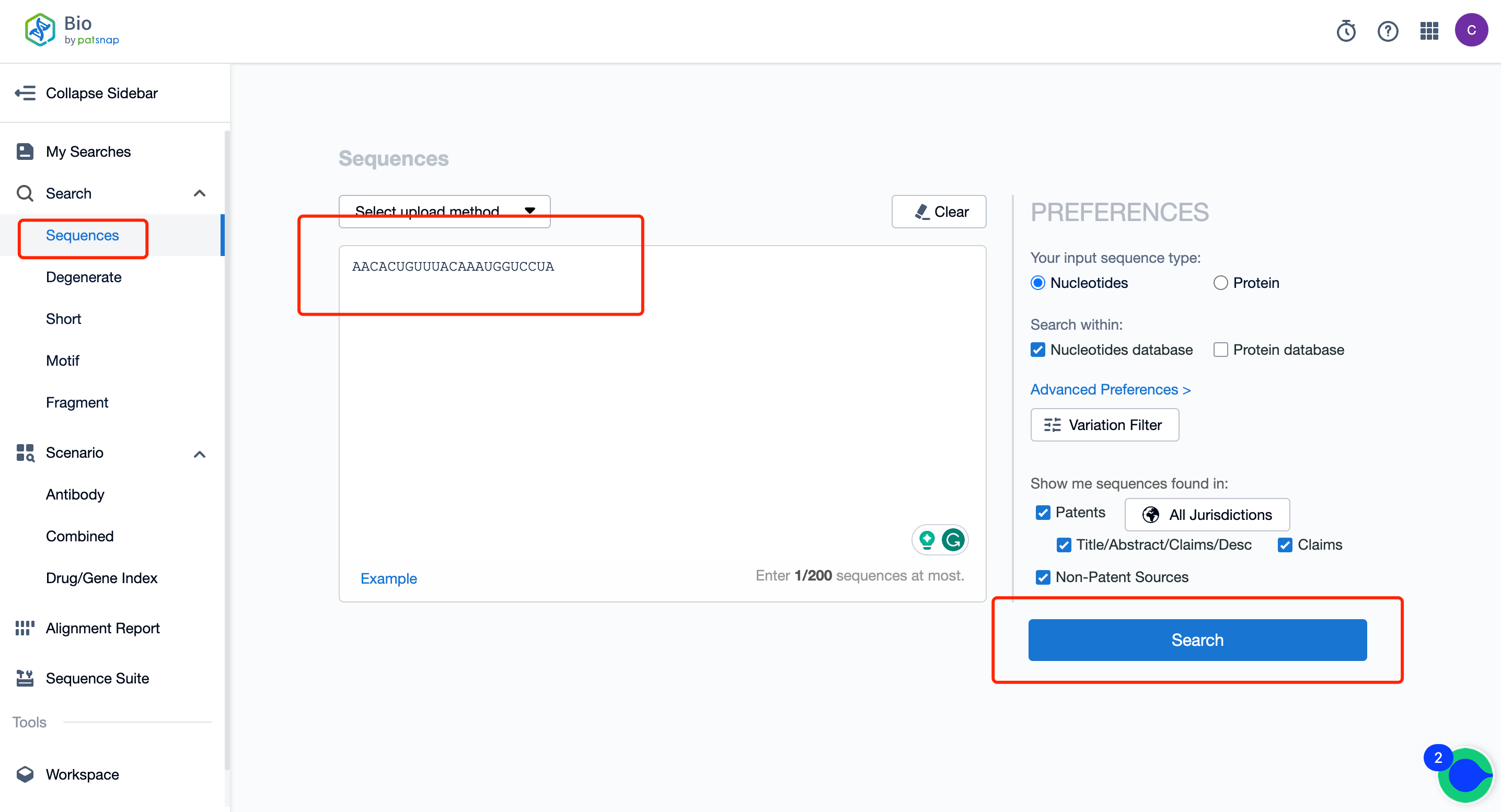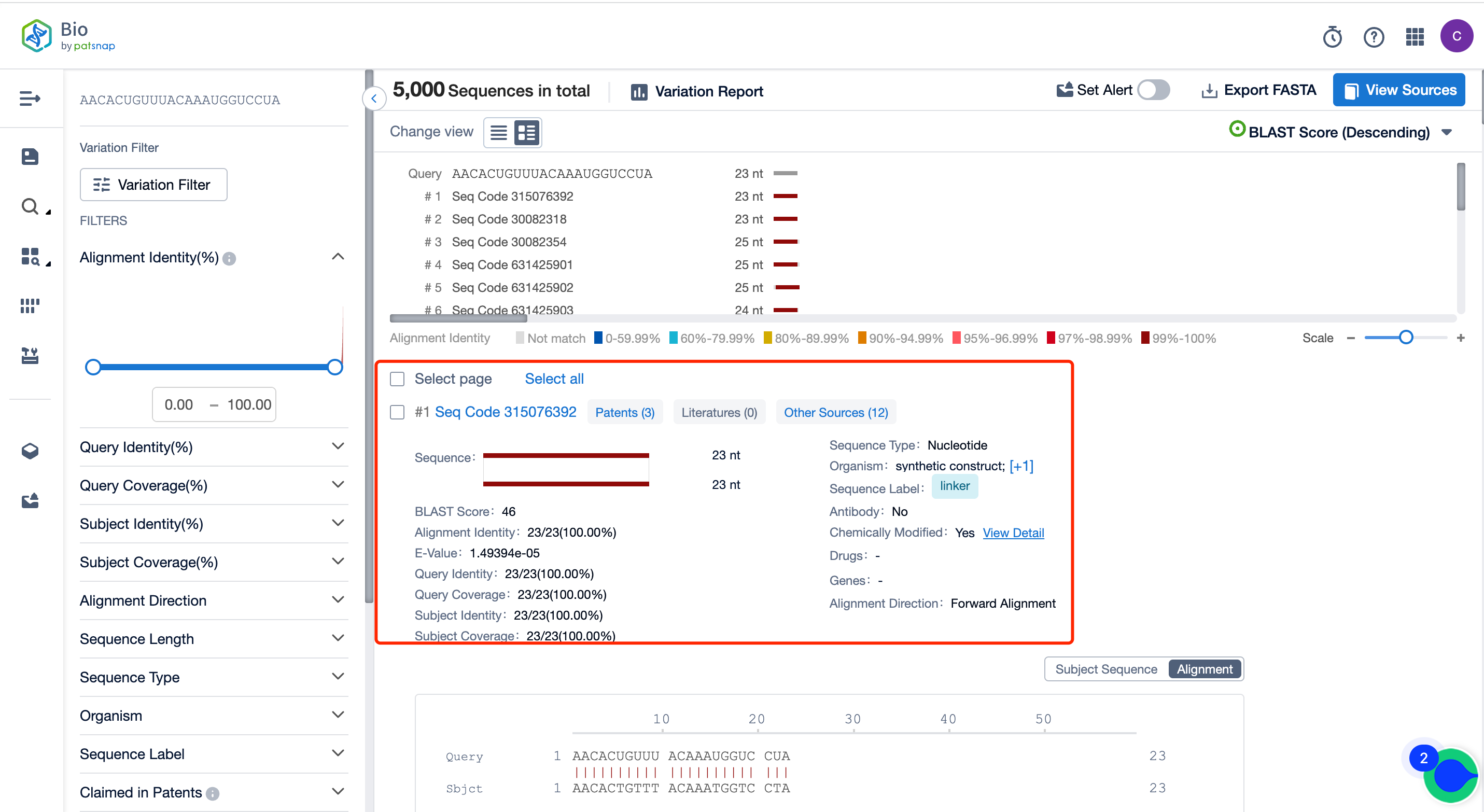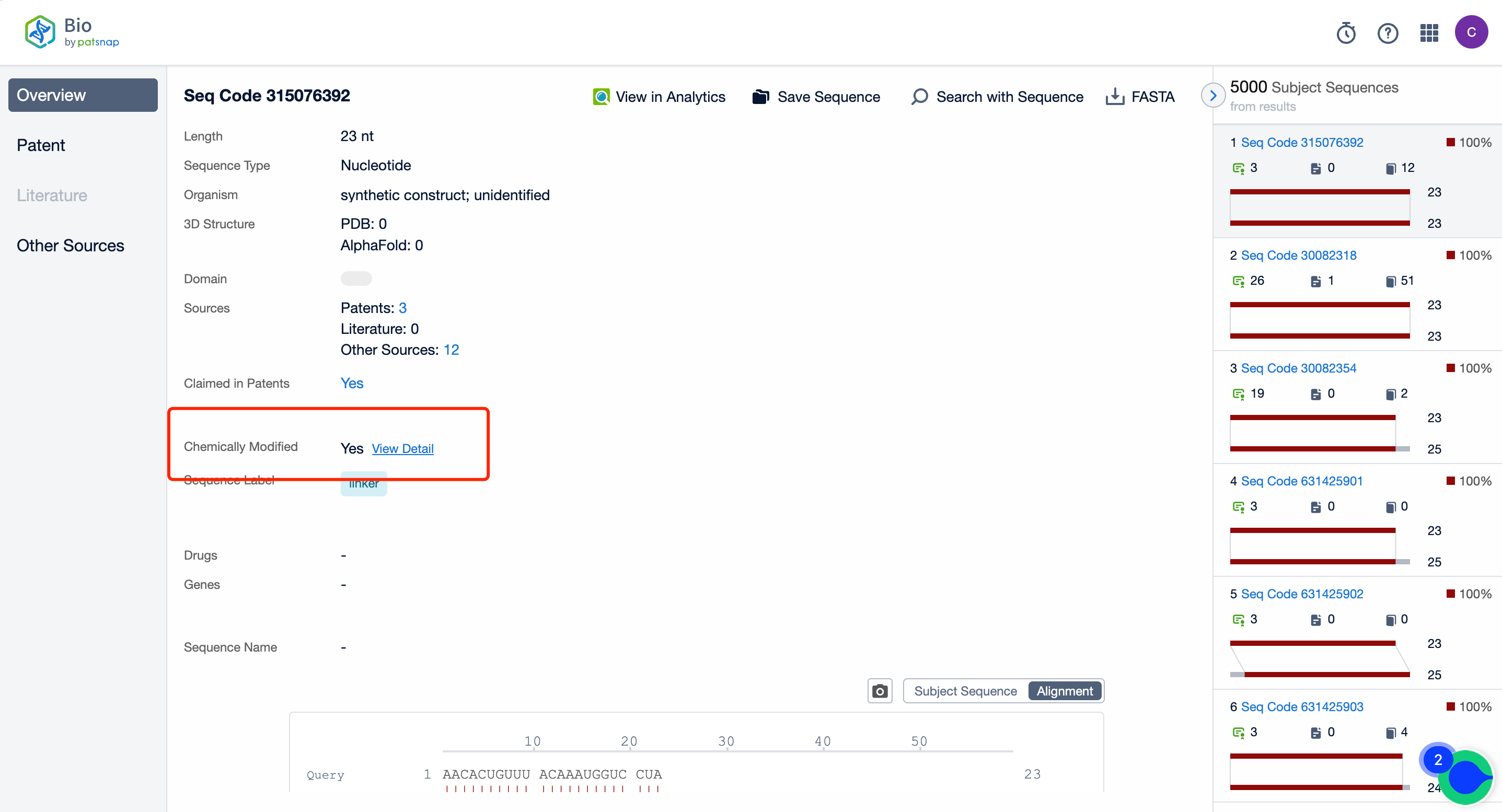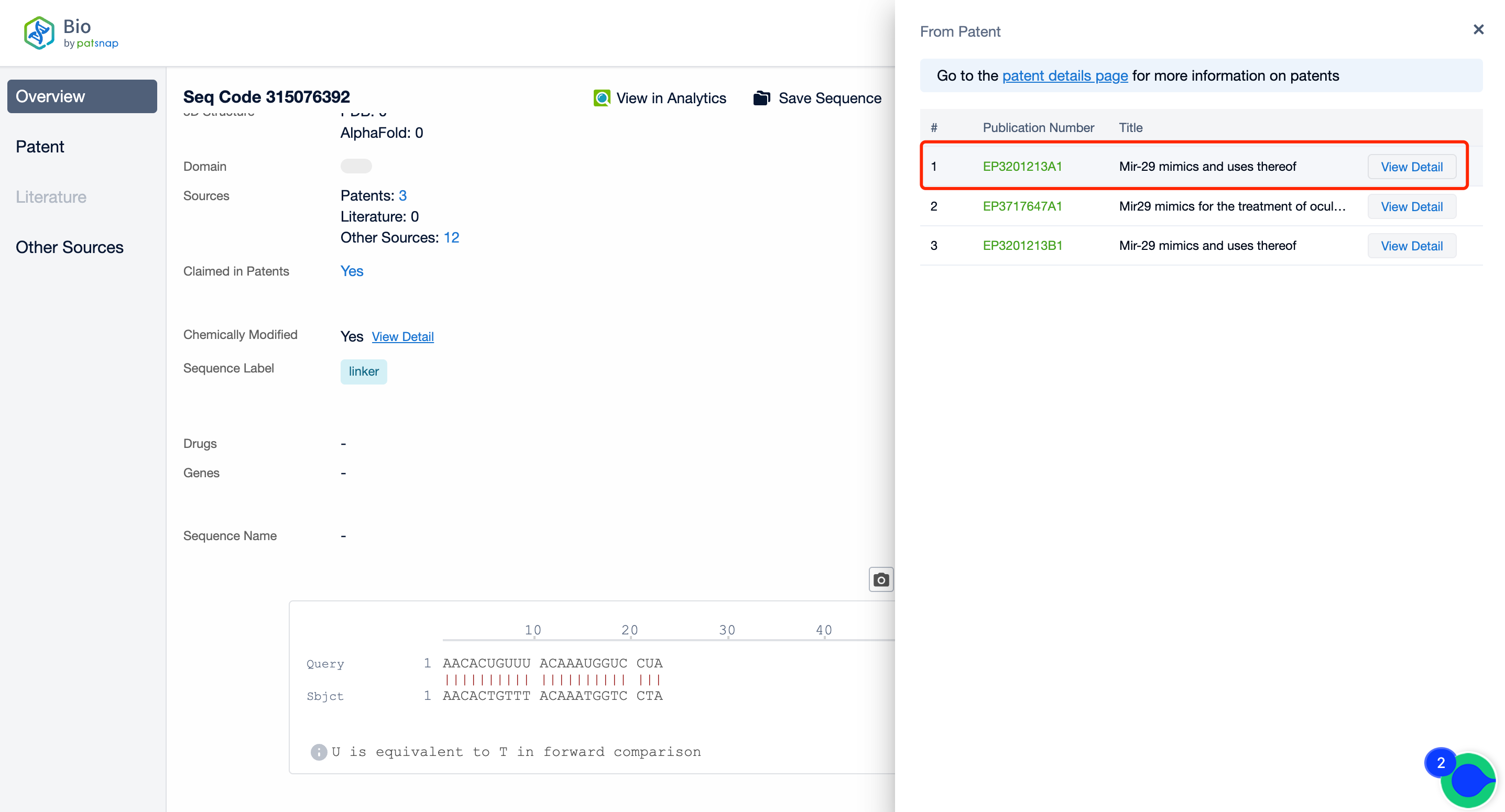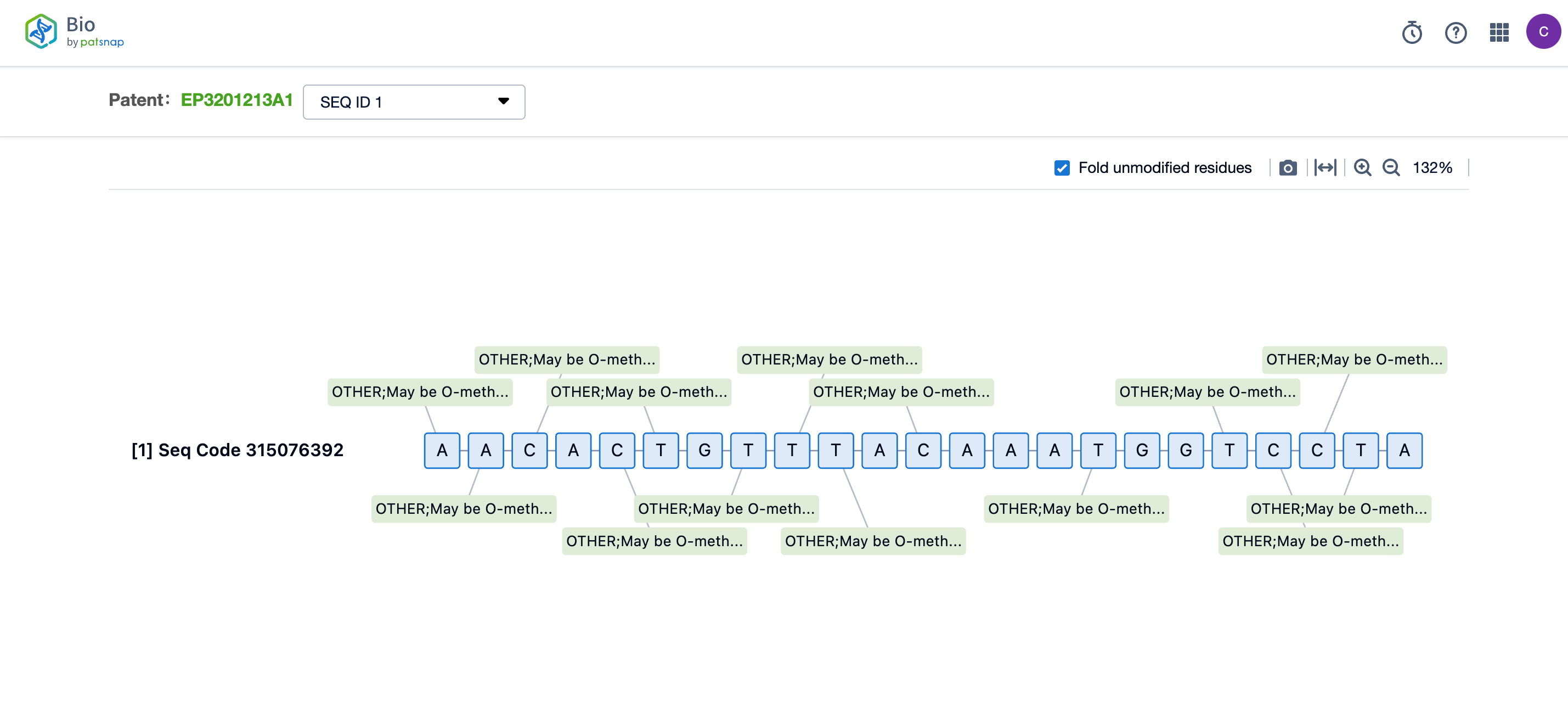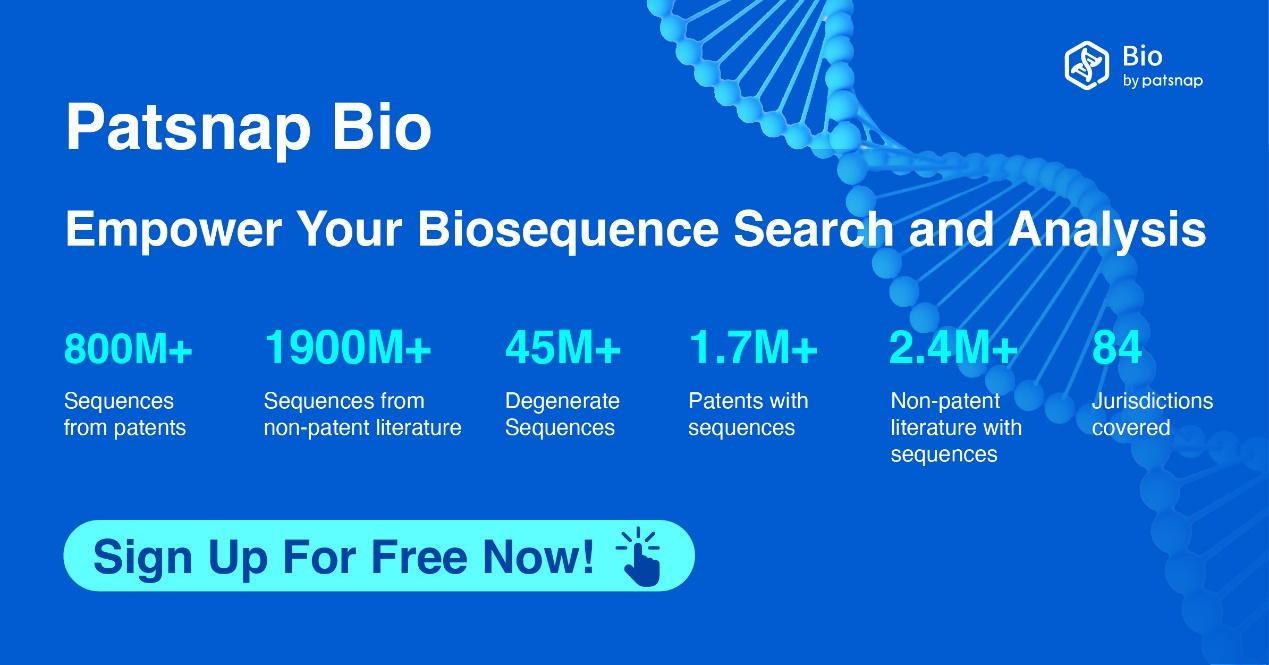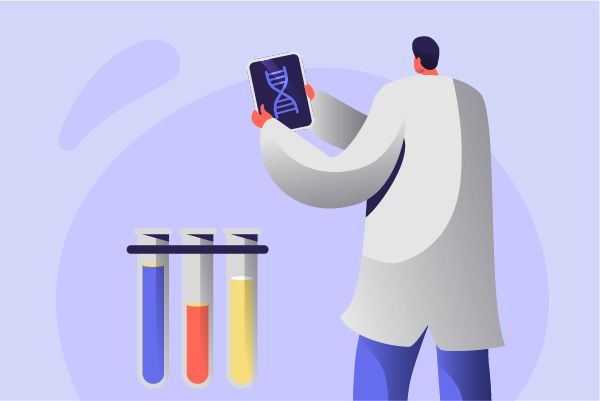Investigating Sequence Modifications: An Exploration with Patsnap Bio Sequence Database
To undertake a detailed exploration of sequence modifications and comprehend the associated specific patent information, we propose utilizing the Patsnap Bio sequence database. Boasting an extensive archive of patent literature and affiliated sequence data, this bio-database forms an invaluable tool for a thorough investigation. Enumerated below is a step-by-step guide detailing the process of utilizing this comprehensive repository:
1. Start by establishing access to the bio database. For this, a free user account is a prerequisite (Patsnap Bio sequence database). A swift registration will enable you to access the site, where you can input the specific sequence into the standard sequence search bar and subsequently conduct the search.
2. Upon successful entry, you will navigate to the sequence list page. It is here that you will elect the sequence demanding an examination.
3. In the ensuing step, move on to the sequence details page to examine the specifics of your chosen sequence. Here, select to observe the details of the sequence modification.
4. Lastly, to digest a more comprehensive account of the sequence details, click on the option aligned to the right, which will furnish a specific description.
Applying these steps should allow for a thorough and engaging exploration of sequence modifications using the Patsnap Bio sequence database.
It is important to note that Patsnap Bio is the most extensive sequence search platform for the Patsnap database. It incorporates AI with human-curated data for comprehensive handling of protein and nucleotide sequence data plucked from global patents, biological periodicals, and public repositories. Essential biological sequences are manually annotated, illuminating structural modifications to provide the most accurate sequence data and boost sequence retrieval efficiency.
Free registration is available for the Bio biological sequence database: https://bio-patsnap-com.libproxy1.nus.edu.sg. Act now to expedite your sequence search tasks.
